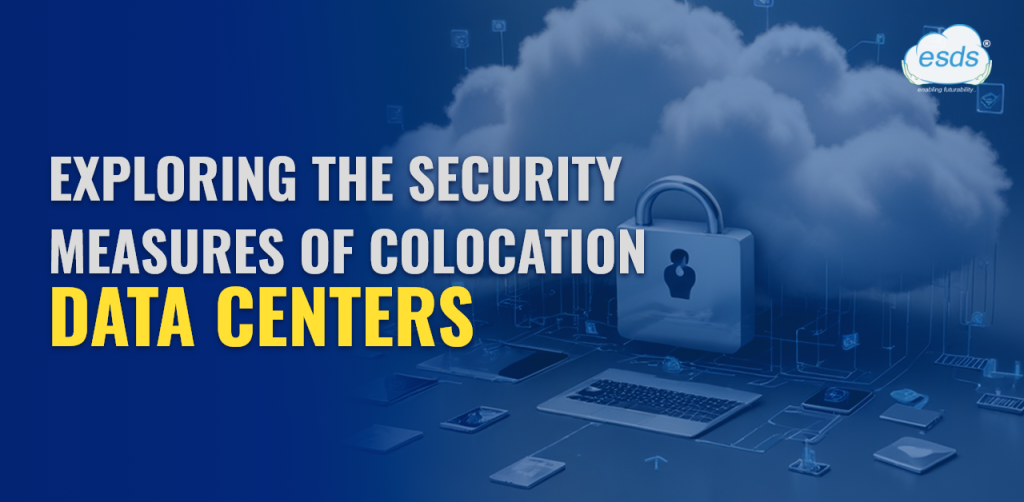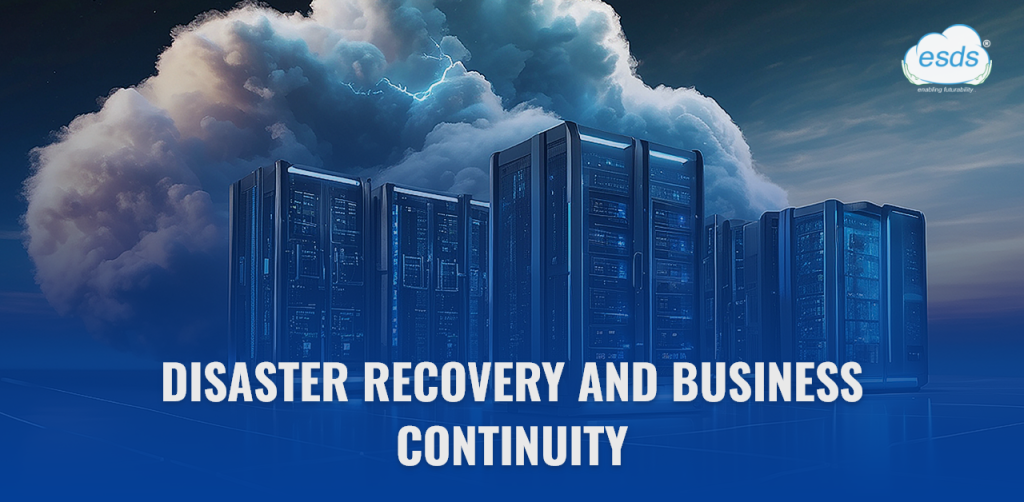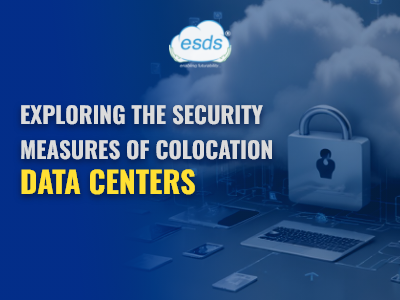Exploring the Security Measures of Colocation Data Center

We all know that data is the lifeblood of businesses, and ensuring its security will always be the top priority for businesses. For every business leader, safeguarding sensitive information is not just a priority but a necessity. This is where the colocation data center steps in, offering a robust solution to protect valuable business data. In this blog post, we delve into the security measures employed by colocation data centers and how they play a pivotal role in safeguarding your company’s data assets.
Understanding Colocation Data centers:
Before delving into security measures, let’s briefly understand what colocation data centers are. Colocation data centers are third-party facilities where businesses rent space to house their servers and other computing hardware. Unlike traditional data centers, where companies own and manage their infrastructure, colocation data centers provide a shared environment where multiple tenants can store their equipment securely.
Physical Security:
One of the primary concerns for any business is the physical security of its data. Colocation data centers address this concern by implementing stringent security protocols. Modern surveillance technologies, such as CCTV cameras, access control systems, and biometric identification procedures, are installed in these establishments. Additionally, colocation data centers often have onsite security personnel who monitor the premises 24/7, ensuring that the facility is exclusively accessible to authorized persons.
Redundant Power Supply: Power outages can significantly threaten data integrity and availability. Colocation data centers mitigate this risk by employing redundant power supply systems. These include backup generators, uninterruptible power supply (UPS) units, and redundant power distribution paths. In the event of a power failure, these systems ensure that critical infrastructure remains operational, minimizing downtime and preventing data loss.
Fire Suppression Systems:
Fire outbreaks can cause irreparable damage to data center infrastructure and the data stored within. To prevent such incidents, colocation data centers deploy advanced fire suppression systems. These systems use various techniques, such as inert gas suppression and pre-action sprinkler systems, to extinguish fires quickly and minimize damage. Additionally, data center facilities are designed with fire-resistant materials to effectively contain and mitigate the spread of fires.
Network Security:
Securing data in transit is just as crucial as protecting it at rest. Strong network security measures are used by colocation data centers to protect against cyberattacks and illegal access. These measures include firewalls, intrusion detection and prevention systems (IDPS), and virtual private networks (VPNs). Furthermore, data centers employ encryption protocols to encrypt data as it travels between servers, ensuring end-to-end security.
Compliance and Certifications:
Maintaining compliance with industry standards and guidelines is important for organizations, especially those operating in highly regulated sectors such as BFSI and healthcare. Colocation data centers undergo rigorous audits and assessments to obtain certifications such as SSAE 18, PCI DSS, and HIPAA. These certifications show the data center’s dedication to security, dependability, and adherence to industry best practices.
Disaster Recovery and Business Continuity:

In the face of unforeseen disasters such as natural calamities or cyberattacks, having a robust disaster recovery and business continuity plan is imperative. Colocation data centers offer businesses the infrastructure and resources to implement comprehensive disaster recovery strategies. These include data replication, backup and restore services, and failover mechanisms to secondary sites. By leveraging the redundancy and scalability of colocation data centers, businesses can ensure uninterrupted operations and rapid recovery in any disaster.
Conclusion:
Colocation provides businesses with a secure and reliable environment to store their critical data assets. By implementing stringent physical security measures, redundant power supply systems, advanced fire suppression systems, and robust network security protocols, colocation data centers offer unparalleled protection against threats and vulnerabilities. Additionally, adherence to industry regulations and certifications, comprehensive disaster recovery, and business continuity plans further solidify the security posture of these facilities. For CTOs and CXOs tasked with safeguarding their company’s data, colocation data centers offer peace of mind and a trusted partner in protecting their most valuable assets. Regarding trust, ESDS Software Solution is the best colocation service provider; we are committed to providing best-in-class colocation services that not only meet but exceed our clients’ expectations. By combining stringent physical security protocols, redundant power supply systems, advanced fire suppression technologies, robust network security measures, and comprehensive compliance frameworks, we offer a reliable, secure environment for businesses to store their critical data assets, empowering businesses to thrive in today’s digital economy with confidence and peace of mind. Partner with ESDS Software Solutions today and experience the difference firsthand.
- Security Operations Center (SOC) Services: A Measured Approach to Digital Threat Management - April 11, 2025
- The Impact of AI on Colocation Services - February 13, 2025
- Colocation Data Centers the Backbone of Modern Business Data Management - November 12, 2024
